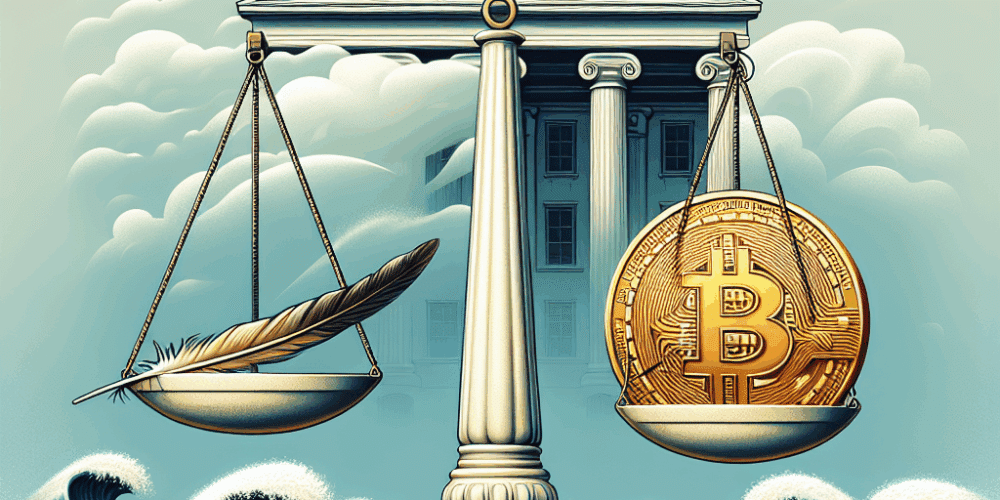In a significant development for the cryptocurrency sector, the United States Treasury has unveiled a comprehensive regulatory framework aimed at enhancing the oversight and stability of digital currency operations. This move comes on the heels of escalating market volatility and growing concerns over the lack of robust regulatory measures within the cryptocurrency industry.
The new guidelines issued by the Treasury seek to introduce a balanced approach to regulation that supports innovation and growth while ensuring robust consumer and investor protections. Key elements of the proposed framework include stricter compliance requirements for cryptocurrency exchanges, enhanced transparency measures, and improved standards for anti-money laundering (AML) practices.
According to the Treasury Secretary, the aim of these regulations is to “bring greater stability to the cryptocurrency market and reduce the risks posed by digital assets to the financial system at large.” This strategic move is seen as an essential step toward integrating cryptocurrencies more fully into the mainstream financial ecosystem.
Impact on the Cryptocurrency Market
The announcement has already started to resonate within the cryptocurrency community, with major digital currencies like Bitcoin and Ethereum experiencing fluctuations in market value. Investors and stakeholders are closely monitoring the potential impacts of these regulatory changes, which could redefine operating norms for crypto-related businesses.
Cryptocurrency exchanges and wallet providers are expected to face increased scrutiny under the new rules. Enhanced due diligence requirements and mandatory compliance with AML and counter-terrorism financing standards are expected to raise operational costs for these companies but could also lead to higher levels of trust and stability in digital asset transactions.
Response from the Crypto Industry
The response from the cryptocurrency industry has been mixed. While some stakeholders welcome the clarity that new regulations promise, others express concerns over potential overreach and the implications for innovation within the sector.
Industry leaders argue that while regulation is necessary, it must be done in a way that does not stifle creativity or impose disproportionate burdens on emerging companies. The dialogue between regulatory bodies and the crypto community will likely be crucial in shaping a regulatory environment that fosters both safety and innovation.
International Repercussions
The move by the U.S. Treasury is expected to have international repercussions, influencing how other nations approach the regulation of cryptocurrencies. As the market for digital assets becomes increasingly global, the need for coordinated regulatory efforts becomes more pronounced. This could lead to more countries adopting similar measures to those of the U.S., potentially leading to a more standardized global regulatory framework.
Looking Forward
The proposed regulatory framework is now subject to a period of public commentary and review, allowing stakeholders from various sectors to provide input that could shape the final regulations. This process is critical as it ensures that the policy is reflective of the needs and concerns of all parties involved in the cryptocurrency ecosystem.
As the landscape of digital currencies continues to evolve, the focus on regulatory frameworks signifies a maturing of the industry and a move towards greater legitimacy and stability. For investors, consumers, and the operators of cryptocurrency platforms, these changes are poised to redefine the boundaries and opportunities within the digital asset space.
Conclusion
The new regulatory framework introduced by the U.S. Treasury represents a pivotal moment for the cryptocurrency industry. By aiming to balance the promotion of innovation with the necessity for protection and stability, the government is taking a proactive stance in shaping the future of digital finance. As the sector continues to evolve, the effectiveness of these regulations in achieving their intended goals will be closely watched by participants and regulators alike.
The implications for the broader financial markets, the cryptocurrency industry, and global economic policies are extensive, as this regulatory approach could potentially serve as a model for other nations. The ongoing developments will, undoubtedly, be of significant interest to anyone engaged with the world of digital currencies.




